Is China ill-prepared for a surge in Covid cases?
With the sudden easing of anti-epidemic rules and Beijing's latest surge in Covid-19 cases, people have been caught out by insufficient medication and are swarming to pharmacies and hospitals. Zaobao correspondent Yu Zeyuan gives a peek into the situation on the ground.
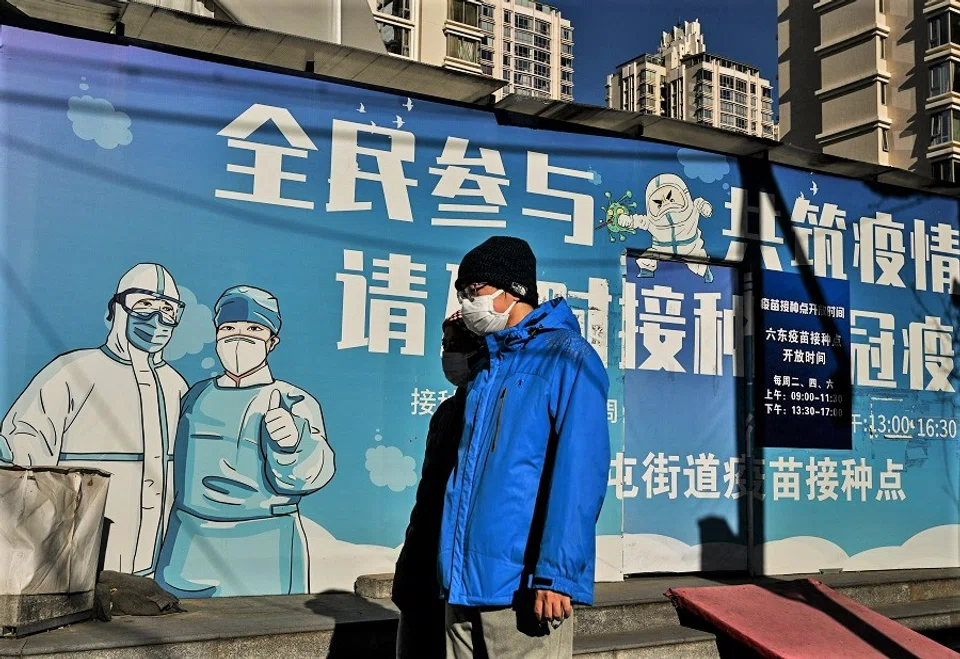
After Beijing announced ten new Covid-19 prevention and control measures on 7 December, more people have been declaring themselves Covid-19-positive, including a few of my friends. Beijing is clearly hit by another Covid-19 outbreak.
Building on the earlier "20 measures", the new measures are an enhancement of the country's Covid-19 response. While couched as an "enhancement", the latest measures signal the country's reopening. When dining out, people need to show a negative nucleic acid test result taken within the last 48 hours for entry, but many restaurants are lax about it. And other than at hospitals and certain venues, the use of contact-tracing smartphone apps is no longer required. Just like that, China's three years of stringent Covid measures seem to have vanished.
While China's harsh Covid restrictions have helped to delay the spread of the pandemic, they have also dealt a big blow to China's economic activities and society. It had come to a point where continuing with the policy became untenable. Moreover, in the face of other countries long choosing to live with the virus, the relaxation of Covid rules was an inevitable choice for Chinese officials.
... many people are not mentally prepared for this change and some do not have enough medication at home.
People not prepared for sudden reopening
However, people did not expect everything to unravel so fast and thoroughly. Over the past few days, the number of people taking trains and buses has decreased sharply while footfall at malls and other leisure venues is also less than before the easing of Covid rules. Clearly, many people are not mentally prepared for this change and some do not have enough medication at home. The sudden spike in Covid-19 case has also caught everyone completely off guard.
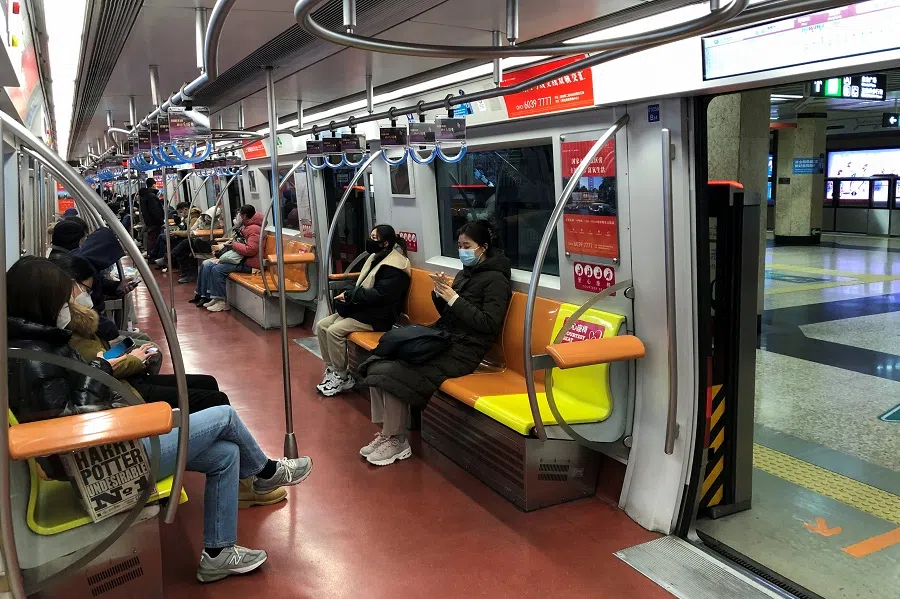
Meanwhile, long queues are forming outside hospitals and pharmacies. Since 8 December, the number of people seeking medical treatment in various precincts of Beijing has soared. Amid a harsh winter, hundreds of people were seen queueing outside a hospital in Haidian district. A resident said that his family member had tested positive for Covid-19 so he went in search of antipyretic drugs. Coming up empty, he headed to the hospital but did not expect the long queue - after waiting in line for two hours, he had not even entered the hospital lobby.
... many pharmacies have run out of antipyretic drugs, anti-inflammatory drugs and cough medicine.
Different situation on the ground
The Economic Observer reported that many pharmacies have run out of antipyretic drugs, anti-inflammatory drugs and cough medicine. Apart from the pharmacies, some hospitals are also facing drug shortages. On the afternoon of 9 December, Beijing No. 6 Hospital ran out of relevant drugs, and their supplies have not been restocked as of the morning of 10 December. A doctor said that five people in her department have been infected with Covid-19 but could not buy drugs as well.
Supplies of antigen rapid test (ART) kits and thermometers are running low as well. At the Gaoji Baikang pharmacy near Chaoyang Hospital, dozens of residents have been coming in to enquire about the availability of ART kits. A staff there said that they only had 100 ART kits that day, which were all snapped up early in the morning. A medical device wholesaler also said he was unable to purchase thermometers recently due to the tight supply.
The agency also urged the people not to stockpile medicine. But the reality is very different.
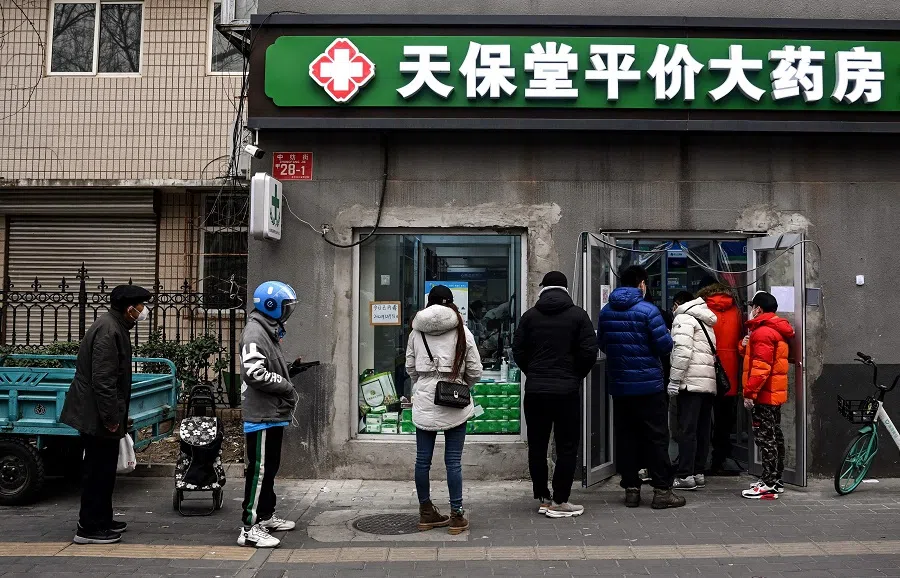
The Beijing Food and Drug Administration said on 6 December that Beijing has released about 400,000 boxes of Lianhua Qingwen on the market daily since 5 December, and that there was enough to go around for everyone. The agency also urged the people not to stockpile medicine. But the reality is very different.
Medical supplies running low
The Economic Observer reported that a 34-year-old resident joined the hospital queue at around noon but was not attended to until about 7pm. He was vaccinated with three shots and his main symptom was a fever, but his temperature was unknown because he was unable to get a thermometer. He was initially unconcerned about getting infected, but on 8 December his body temperature rose and he became sensitive to cold. He did not have any suitable medicine on hand, so on the morning of 9 December, he tried to purchase fever medicine online and from nearby pharmacies, but to no avail.
Official figures for Beijing city show that in the 24 hours of 10 December, Beijing saw 784 new local confirmed cases and 877 asymptomatic cases, with no suspected cases. But this clearly does not reflect reality. After 7 December, there were no more checks on nucleic acid test results, and many positive rapid antigen test cases were not entered into official tallies, while many others did not do rapid antigen tests, so Beijing's actual infection figures are probably far higher than the official figures.
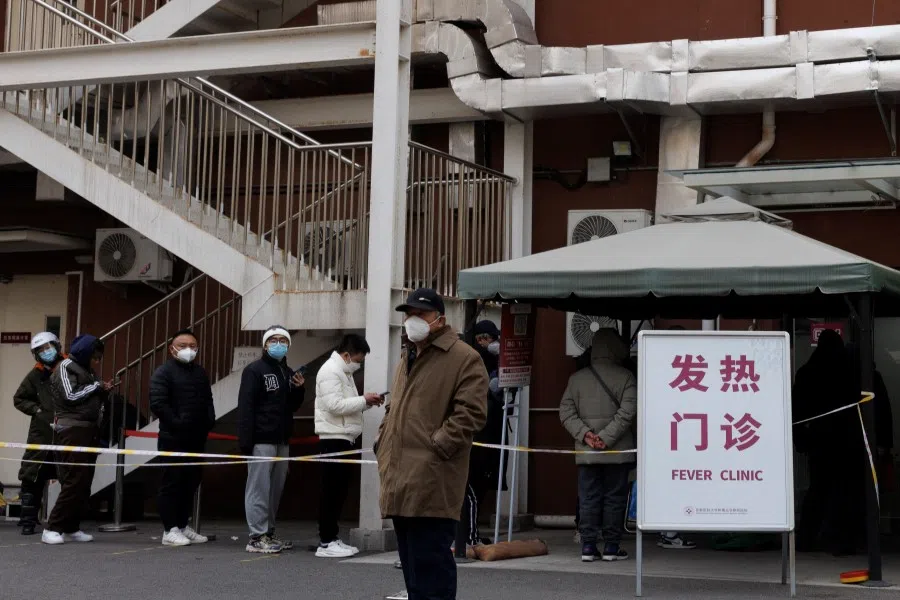
It is not just Beijing that is seeing long queues at hospitals and pharmacies. The Economic Observer reported that in Wuhan, Yu Changping - head of the respiratory department at Renmin Hospital of Wuhan University - received enquiries from friends on whether fever and cough medicines were available for purchase at the hospital. To Yu's knowledge, supplies are insufficient at pharmacies, and medicine is also running tight at the hospital he works at, so that some staff are also finding it difficult to purchase.
System in disarray
One important reason that residents in Beijing and elsewhere are lacking medicine is because over the past three years, medicines against fever, cough, infection and sore throat have required registration, and when the outbreak got serious, some cities even ordered suspending sales of such medicines. It was only on 3 December that Beijing adjusted the policies on purchasing these medicines; with a sudden relaxing of controls, the virus spread quickly and many residents did not prepare medicines in time.
Obviously, as control measures open up, many places in China are facing or will face the first wave of infections, and the healthcare system and medicine supplies are facing an enormous challenge.
Experts like Zhong Nanshan forecast that the peak will hit in January or February next year.
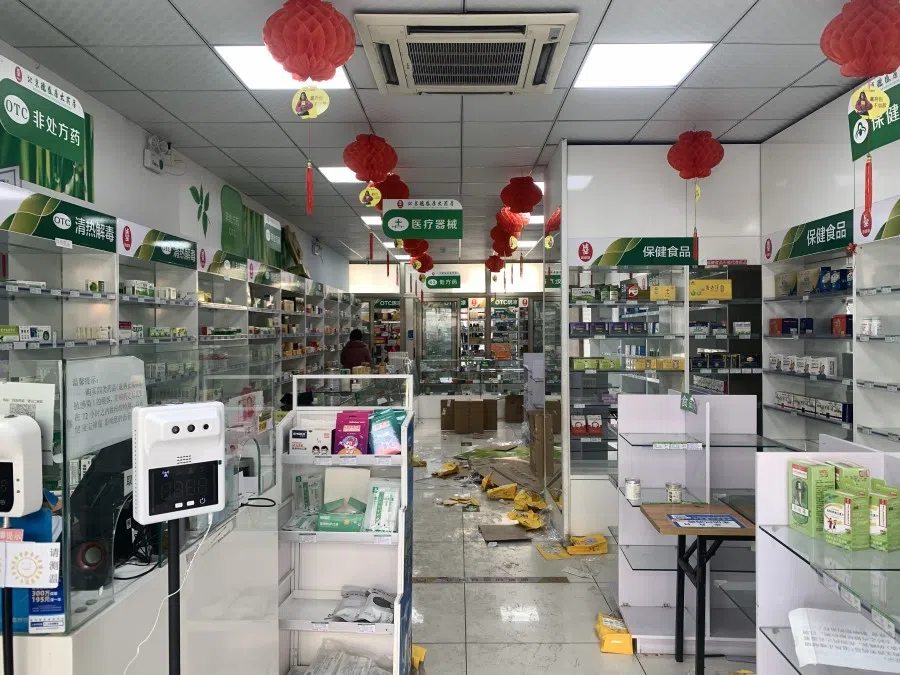
On 9 December, general director of the Bureau of Medical Administration of the National Health Commission Jiao Yahui said at a press conference that previously, positive Covid cases went to designated hospitals, but going forward, all medical institutions will have to handle positive cases, and are not allowed to turn away those with positive nucleic acid test results.
Guangzhou, Shanghai and other places have also requested fever clinics to remain open, and that they must not suspend fever clinics or emergency medical services simply because of a positive Covid case.
But the reality is that more and more patients are swarming to hospitals, and medical personnel are at increased risk of getting infected themselves. Besides, infections have not yet peaked in Beijing and elsewhere. Experts like Zhong Nanshan forecast that the peak will hit in January or February next year.
Relaxing controls is the general direction and there is no turning back. But resolving patients' treatment and medication and easing public fear of the virus to steadily get through the current and future Covid waves is another challenge that China's government cannot avoid.
This article was first published in Lianhe Zaobao as "北京遭受疫情冲击".


![[Big read] When the Arctic opens, what happens to Singapore?](https://cassette.sphdigital.com.sg/image/thinkchina/da65edebca34645c711c55e83e9877109b3c53847ebb1305573974651df1d13a)


![[Video] George Yeo: America’s deep pain — and why China won’t colonise](https://cassette.sphdigital.com.sg/image/thinkchina/15083e45d96c12390bdea6af2daf19fd9fcd875aa44a0f92796f34e3dad561cc)